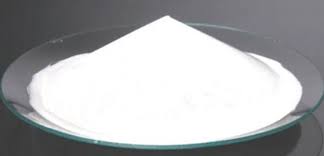
Introduction
High strength glass microspheres are transforming the landscape of material science and engineering. These tiny, spherical particles possess a unique combination of light weight and high strength, making them invaluable across various industries. In this blog, we will explore the fascinating world of high strength glass microspheres, their properties, applications, and the technological advancements driving their use.
What Are High Strength Glass Microspheres?
High strength glass microspheres are small, hollow or solid glass particles ranging in diameter from a few micrometers to several millimeters. They are engineered to provide superior strength while maintaining a low density, which makes them ideal for a multitude of applications.
Composition and Properties
The unique properties of high strength glass microspheres stem from their composition and structure:
- Material Composition: Typically made from borosilicate or soda-lime glass.
- High Compressive Strength: Capable of withstanding significant pressure without breaking.
- Low Density: Lightweight, which is beneficial in reducing the overall weight of composite materials.
- Thermal Stability: Resistant to high temperatures, making them suitable for use in extreme environments.
- Chemical Resistance: Inert to most chemicals, ensuring longevity and durability.
How Do High Strength Glass Microspheres Work?
The effectiveness of high strength glass microspheres lies in their ability to enhance the properties of composite materials without significantly increasing their weight. These microspheres are incorporated into various matrices, such as polymers, resins, and metals, to improve mechanical properties and performance.
Mechanism of Action
- Reinforcement: When mixed with a matrix material, glass microspheres act as a reinforcing agent, distributing stress more evenly and enhancing the material’s overall strength.
- Weight Reduction: Due to their low density, incorporating microspheres reduces the weight of the composite material, which is crucial in applications where weight savings are critical.
- Thermal Insulation: Their inherent thermal stability and low thermal conductivity make them excellent for insulating applications.
Applications of High Strength Glass Microspheres
High strength glass microspheres are used across a broad spectrum of industries due to their versatile properties. Here are some of the key application areas:
Automotive Industry
In the automotive sector, reducing vehicle weight is paramount for improving fuel efficiency and reducing emissions. High strength glass microspheres are used in:
- Lightweight Composites: To manufacture lightweight body panels and structural components.
- Fillers in Paints and Coatings: Enhancing the durability and thermal resistance of automotive paints and coatings.
Aerospace Industry
The aerospace industry benefits significantly from the use of high strength glass microspheres, particularly in:
- Composite Materials: Used in the construction of aircraft components to reduce weight while maintaining structural integrity.
- Thermal Insulation: Providing insulation for high-temperature areas, such as engine compartments.
Construction Industry
In construction, high strength glass microspheres are used to create materials that are both lightweight and strong:
- Concrete and Cement: Enhancing the thermal and mechanical properties of concrete.
- Insulating Panels: Used in the production of lightweight, high-strength insulating panels.
Medical Devices
The unique properties of high strength glass microspheres make them suitable for medical applications, including:
- Bone Cement: Used in orthopedic surgeries to create strong, lightweight bone cements.
- Medical Implants: Enhancing the mechanical properties of polymer-based implants.
Oil and Gas Industry
In the oil and gas sector, high strength glass microspheres are used to improve drilling efficiency and safety:
- Cementing Slurries: Reducing the density of cementing slurries to prevent downhole fluid migration.
- Drilling Fluids: Enhancing the properties of drilling fluids to improve wellbore stability.
Benefits of Using High Strength Glass Microspheres
Enhanced Mechanical Properties
One of the primary benefits of high strength glass microspheres is the significant enhancement of mechanical properties in composite materials. This includes increased tensile strength, compressive strength, and impact resistance.
Weight Reduction
Incorporating glass microspheres into composite materials drastically reduces their weight without compromising their strength. This is particularly beneficial in industries like automotive and aerospace, where weight reduction is critical.
Thermal and Chemical Resistance
High strength glass microspheres provide excellent thermal and chemical resistance, making them suitable for use in harsh environments. This extends the lifespan of the materials they are incorporated into and reduces maintenance costs.
Cost-Effectiveness
Despite their advanced properties, high strength glass microspheres are cost-effective, offering a high performance-to-cost ratio. This makes them an attractive option for manufacturers looking to enhance material properties without significantly increasing costs.
Technological Advances in High Strength Glass Microspheres
Nano-Scale Engineering
Recent advancements in nano-scale engineering have led to the development of glass microspheres with even greater strength and uniformity. By manipulating the microspheres at the molecular level, scientists can enhance their properties and create materials that are exceptionally strong yet lightweight.
Surface Treatments
Innovations in surface treatments have improved the compatibility of glass microspheres with different matrix materials. These treatments can enhance the bonding properties of the microspheres, leading to stronger and more durable composites.
Functionalization
Functionalizing glass microspheres with various chemical groups can impart additional properties, such as increased hydrophobicity or improved thermal conductivity. This expands their range of applications and allows for more tailored material solutions.
Smart Microspheres
The development of smart microspheres that can respond to environmental changes, such as temperature or pH, is a burgeoning field. These smart microspheres can be used in applications requiring adaptive materials, such as self-healing composites or responsive medical devices.
Case Studies and Real-World Applications
To illustrate the impact of high strength glass microspheres, let’s look at some real-world case studies:
Automotive Lightweighting
A leading automotive manufacturer incorporated high strength glass microspheres into the polymer matrix of car body panels. The result was a significant reduction in vehicle weight, leading to improved fuel efficiency and reduced emissions, without compromising the strength and durability of the panels.
Aerospace Thermal Insulation
An aerospace company used high strength glass microspheres in the production of thermal insulating panels for aircraft. These panels provided excellent thermal insulation, reducing the need for additional heating systems and thereby saving weight and energy.
Medical Bone Cement
In the medical field, high strength glass microspheres were used to develop a new type of bone cement. This cement was not only lighter and stronger than traditional materials but also showed improved biocompatibility, leading to faster recovery times for patients.
Comparative Analysis of High Strength Glass Microspheres
To better understand the advantages of high strength glass microspheres, let’s compare them with other commonly used reinforcing materials:
| Property | High Strength Glass Microspheres | Carbon Fibers | Metallic Powders |
|---|---|---|---|
| Density | Low | Moderate | High |
| Compressive Strength | High | Very High | High |
| Thermal Stability | Excellent | Good | Moderate |
| Chemical Resistance | Excellent | Moderate | Varies |
| Cost | Moderate | High | Moderate |
| Ease of Processing | Easy | Moderate | Difficult |
Analysis
- Density: High strength glass microspheres have a significantly lower density compared to carbon fibers and metallic powders, making them ideal for lightweight applications.
- Compressive Strength: While carbon fibers have the highest compressive strength, high strength glass microspheres still offer excellent performance with the added benefit of lower cost and weight.
- Thermal Stability: Glass microspheres exhibit superior thermal stability compared to metallic powders and carbon fibers, making them suitable for high-temperature applications.
- Chemical Resistance: The chemical inertness of glass microspheres ensures they maintain their integrity in harsh chemical environments.
- Cost and Ease of Processing: High strength glass microspheres provide a good balance between cost and ease of processing, making them accessible for a wide range of applications.
Future Prospects and Innovations
The future of high strength glass microspheres looks promising, with continued research and development paving the way for new applications and enhanced properties.
Sustainability and Environmental Impact
As the demand for sustainable materials grows, high strength glass microspheres are positioned to play a crucial role. Their production from recycled glass and the potential for further recycling at the end of their lifecycle contribute significantly to reducing environmental impact.
Integration with Advanced Manufacturing
The integration of high strength glass microspheres with advanced manufacturing techniques, such as 3D printing and additive manufacturing, is set to revolutionize material design. This will enable the creation of complex, high-performance structures that were previously unattainable.
Biocompatible and Biomedical Applications
The development of biocompatible glass microspheres opens up new possibilities in the biomedical field. These microspheres can be used in drug delivery systems, tissue engineering, and as scaffolds for bone regeneration, providing innovative solutions for medical challenges.
Conclusion
High strength glass microspheres are a remarkable innovation in material science, offering a unique combination of lightweight, high strength, thermal stability, and chemical resistance. Their versatility and cost-effectiveness make them invaluable across a wide range of industries, from automotive and aerospace to medical and construction.
As technology advances, the potential applications of high strength glass microspheres will continue to expand, driving further innovation and enhancing the performance of materials in ways previously thought impossible. By understanding and harnessing the power of these tiny yet mighty particles, we can create a future where materials are stronger, lighter




